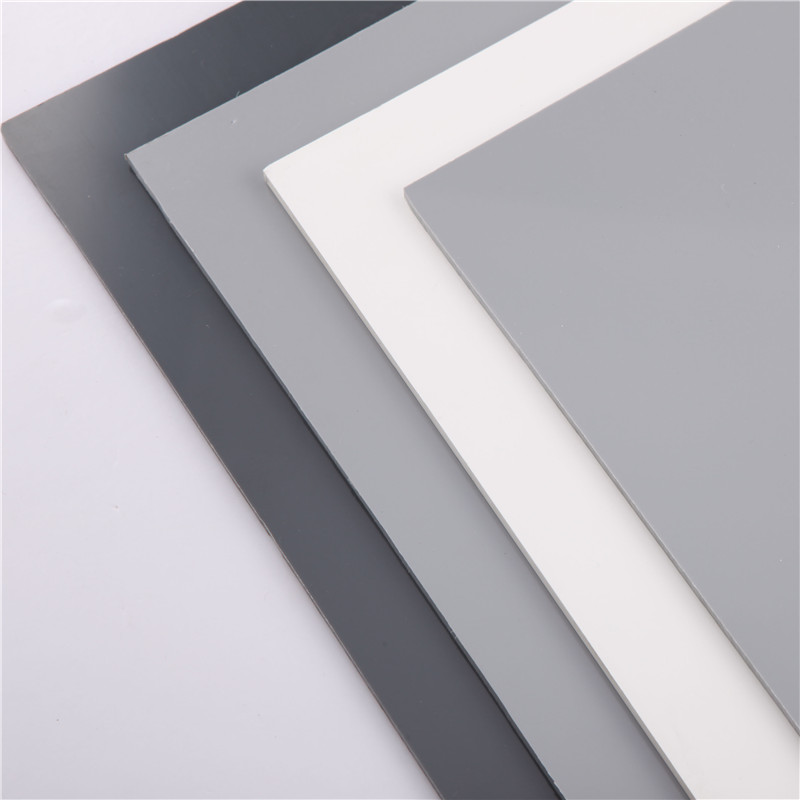Sep . 25, 2024 16:22 Back to list
hdpe rain pipe
The Rising Popularity of HDPE Rain Pipes An Overview
In recent years, there has been a growing awareness of the importance of sustainable materials in construction and agriculture. High-Density Polyethylene (HDPE) has emerged as a favored material, particularly in the realm of drainage systems, such as HDPE rain pipes. These pipes have gained attention for their efficiency, durability, and cost-effectiveness in managing stormwater and other liquid waste. This article delves into the reasons for the increasing popularity of HDPE rain pipes, their benefits, and potential applications.
Understanding HDPE and Its Properties
High-Density Polyethylene is a thermoplastic polymer made from petroleum. It is known for its high strength-to-density ratio, which makes it an ideal material for manufacturing various products, including pipes. The properties of HDPE, such as resistance to chemicals, UV rays, and low moisture absorption, contribute to its long lifespan and reliability. This resilience makes HDPE rain pipes an excellent choice for areas that experience heavy rainfall or irregular weather patterns.
Advantages of HDPE Rain Pipes
1. Durability One of the most significant advantages of HDPE rain pipes is their durability. Unlike traditional materials like concrete and metal, HDPE pipes are less likely to crack or corrode over time. This resistance enhances their longevity, reducing the need for frequent replacements and repairs.
2. Cost-Effectiveness HDPE rain pipes are often more affordable than their counterparts, both in terms of initial investment and long-term maintenance costs. Their lightweight nature allows for easier handling and installation, reducing labor costs and transportation expenses.
3. Flexibility HDPE pipes offer a degree of flexibility that allows them to accommodate ground movements, making them ideal for use in various terrains. This feature reduces the risk of damage often associated with rigid piping systems.
4. Environmentally Friendly The production of HDPE pipes consumes less energy compared to traditional pipe manufacturing processes. Additionally, HDPE is recyclable, which contributes to sustainability. As cities worldwide seek to incorporate more eco-friendly solutions, HDPE rain pipes align well with such initiatives.
hdpe rain pipe

5. Effective Water Management With the increasing frequency of extreme weather events, efficient stormwater management has become crucial. HDPE rain pipes facilitate effective drainage, preventing flooding and waterlogging in urban areas. Their smooth surfaces reduce friction, allowing for quick and efficient flow of rainwater.
Applications of HDPE Rain Pipes
HDPE rain pipes find applications across various sectors, including
- Urban Drainage Systems Cities are increasingly adopting HDPE pipes for their stormwater management systems. These pipes help channel rainwater away from streets and buildings, reducing the risk of flooding.
- Agriculture Farmers utilize HDPE pipes for drainage in agricultural fields, ensuring effective water management that promotes healthy crop growth. The resilience of HDPE to chemicals also makes it suitable for agricultural applications where fertilizers and pesticides might be present.
- Industrial Use Industries that require efficient waste management systems benefit from HDPE rain pipes. Their ability to withstand corrosive substances makes them suitable for chemical plants and manufacturing facilities.
- Landscaping In landscaping projects, HDPE rain pipes can help manage excess water, maintaining the health of gardens and lawns while preventing water build-up that can lead to plant diseases.
Conclusion
As environmental concerns and the push for sustainable practices grow, HDPE rain pipes are becoming an indispensable part of modern water management systems. Their combination of durability, cost-effectiveness, and environmental benefits positions them as a superior alternative to traditional materials. Whether used in urban infrastructure or agricultural practices, HDPE rain pipes are proving effective in addressing the pressing challenges of water management. As technology continues to advance and innovation thrives, the future of HDPE in the construction and agricultural sectors looks promising. Investing in HDPE rain pipes is not just a smart choice but a step towards a more sustainable and resilient future.
-
High-Quality PPR Pipes and Fittings Durable ERA PPR & PVC PPR Solutions
NewsJul.08,2025
-
Black HDPE Cutting Board - Durable, Non-Porous & Food Safe HDPE Plastic Cutting Board
NewsJul.08,2025
-
High-Quality CPVC Panel Durable HDPE & PVC Panels Supplier
NewsJul.08,2025
-
Double PE Welding Rod Supplier - High Strength, Durable & Versatile Welding Solutions
NewsJul.07,2025
-
High-Quality PVC-O Pipe Supplier Durable 75mm PVC Pipe & Connections Leading PVC Pipe Company
NewsJul.07,2025
-
HDPE Drainage Pipe Supplier – Durable & Corrosion-Resistant Solutions
NewsJul.06,2025

